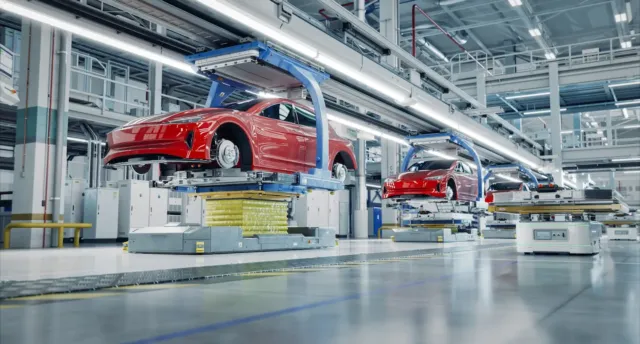
Automobile Industry’s New Wave of Innovation: Driving the Future Forward
The automobile industry, one of the world’s most dynamic and competitive sectors, is witnessing an unprecedented phase of innovation. From electric vehicles to autonomous driving, the next generation of automotive technology is not just about mobility but about sustainability, safety, and smarter living. Companies are no longer competing only on speed, design, or price—they are racing to redefine the very essence of transportation.
Rise of Electric Vehicles (EVs)
One of the most disruptive innovations has been the rapid adoption of electric vehicles. With governments worldwide pushing for reduced carbon emissions, automakers are investing billions into EV production. Brands like Tesla, BYD, Tata Motors, and Hyundai are setting new standards by offering vehicles with longer battery ranges, faster charging capabilities, and competitive pricing. Solid-state batteries, touted as the future of EVs, promise to overcome current limitations by offering higher energy density and quicker charging times.
Charging infrastructure is also expanding, with companies focusing on ultra-fast charging stations that reduce downtime for drivers. This push not only makes EVs more convenient but also positions them as a mainstream choice rather than a niche luxury.
Autonomous and Self-Driving Cars
Parallel to electrification, autonomous technology is reshaping the automotive landscape. Self-driving cars, once a futuristic concept, are now being tested on public roads. Companies like Waymo, Tesla, and Baidu are leading the charge with advanced AI-driven systems capable of navigating complex traffic scenarios.
The potential benefits are immense—reduced road accidents caused by human error, smoother traffic flow, and enhanced mobility for the elderly or disabled. However, challenges such as regulatory frameworks, ethical considerations, and cybersecurity threats must be addressed before full-scale adoption becomes reality.
Artificial Intelligence and Connected Cars
Artificial Intelligence (AI) has become the backbone of automotive innovation. From predictive maintenance to personalized infotainment systems, AI is helping cars become smarter and more intuitive. Connected car technology enables vehicles to communicate with each other and with infrastructure, creating safer and more efficient transport ecosystems.
For instance, AI-based systems can alert drivers about upcoming traffic congestion, dangerous road conditions, or even recommend eco-friendly routes. The integration of voice recognition, smart assistants, and advanced driver-assistance systems (ADAS) is making vehicles more interactive and user-friendly than ever before.
Sustainability and Green Technology
Beyond EVs, the industry is exploring alternative fuels such as hydrogen-powered vehicles and biofuels. Hydrogen fuel cells, in particular, are gaining traction for their ability to provide long-range driving with zero emissions. Additionally, automakers are increasingly using recyclable materials, lightweight composites, and sustainable manufacturing practices to minimize their environmental footprint.
Governments and regulatory bodies worldwide are also setting stricter standards, pushing automakers to innovate in areas such as emission reduction, recycling, and lifecycle management of vehicles.
Mobility as a Service (MaaS)
Another significant trend is the rise of Mobility as a Service (MaaS), where transportation is no longer seen as a product but as a service. Ride-sharing platforms, subscription-based car ownership, and micro-mobility options like e-scooters are changing how people view transportation. Automakers are partnering with tech companies to develop platforms that integrate public transport, ride-sharing, and personal vehicles into seamless mobility solutions.
Challenges and the Road Ahead
While innovation is booming, the road is not without obstacles. High production costs, supply chain disruptions, and the global semiconductor shortage have slowed progress. Consumer trust in autonomous vehicles and affordability of EVs remain pressing issues. Yet, the relentless pace of technological advancement indicates that these hurdles are temporary.
Conclusion
The automobile industry is at a transformative crossroads. Innovation is no longer optional—it is the driving force behind survival and success. As electric, autonomous, and AI-driven vehicles become mainstream, the industry is redefining mobility for generations to come. What once seemed like science fiction is now shaping the future of transportation, steering us toward a world that is smarter, safer, and more sustainable.




